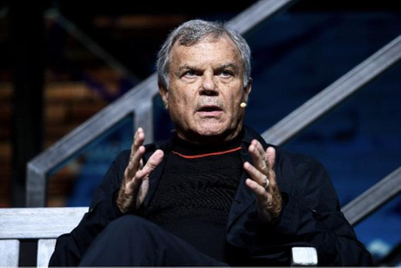"Conditions are different to what they were a couple of years ago."
These words, from WPP CEO Sir Martin Sorrell in an interview with Campaign Asia-Pacific a mere fortnight ago, now sound oddly prophetic. Though Sorrell was referring to WPP's overall outlook for the rest of the year in the face of rapid digital changes, his words could easily be taken as an apt description of his own position within the company he himself built.
Over the last week, Sorrell has been in the headlines under (what could be charitably described as) less than ideal circumstances. A month after the company posted a shockingly dismal decline in its growth, WPP's founder has become the target of an in-house investigation for an undisclosed allegation of personal misconduct.
While we continue to watch how these latest developments unfold, here is part one of our in-depth chat with Sorrell in the days immediately before this crisis struck. In this opening section, Sorrell gives Campaign Asia-Pacific brand director Atifa Silk his take on the state of marketing in 2018 and how he sees the cumulative effects of long-term and short-term pressures creating "an almost perfect storm".



.jpg&h=334&w=500&q=100&v=20250320&c=1)
.jpg&h=334&w=500&q=100&v=20250320&c=1)
.jpg&h=334&w=500&q=100&v=20250320&c=1)
.jpg&h=334&w=500&q=100&v=20250320&c=1)



.jpg&h=334&w=500&q=100&v=20250320&c=1)





.jpg&h=268&w=401&q=100&v=20250320&c=1)
.png&h=268&w=401&q=100&v=20250320&c=1)
.jpg&h=268&w=401&q=100&v=20250320&c=1)
